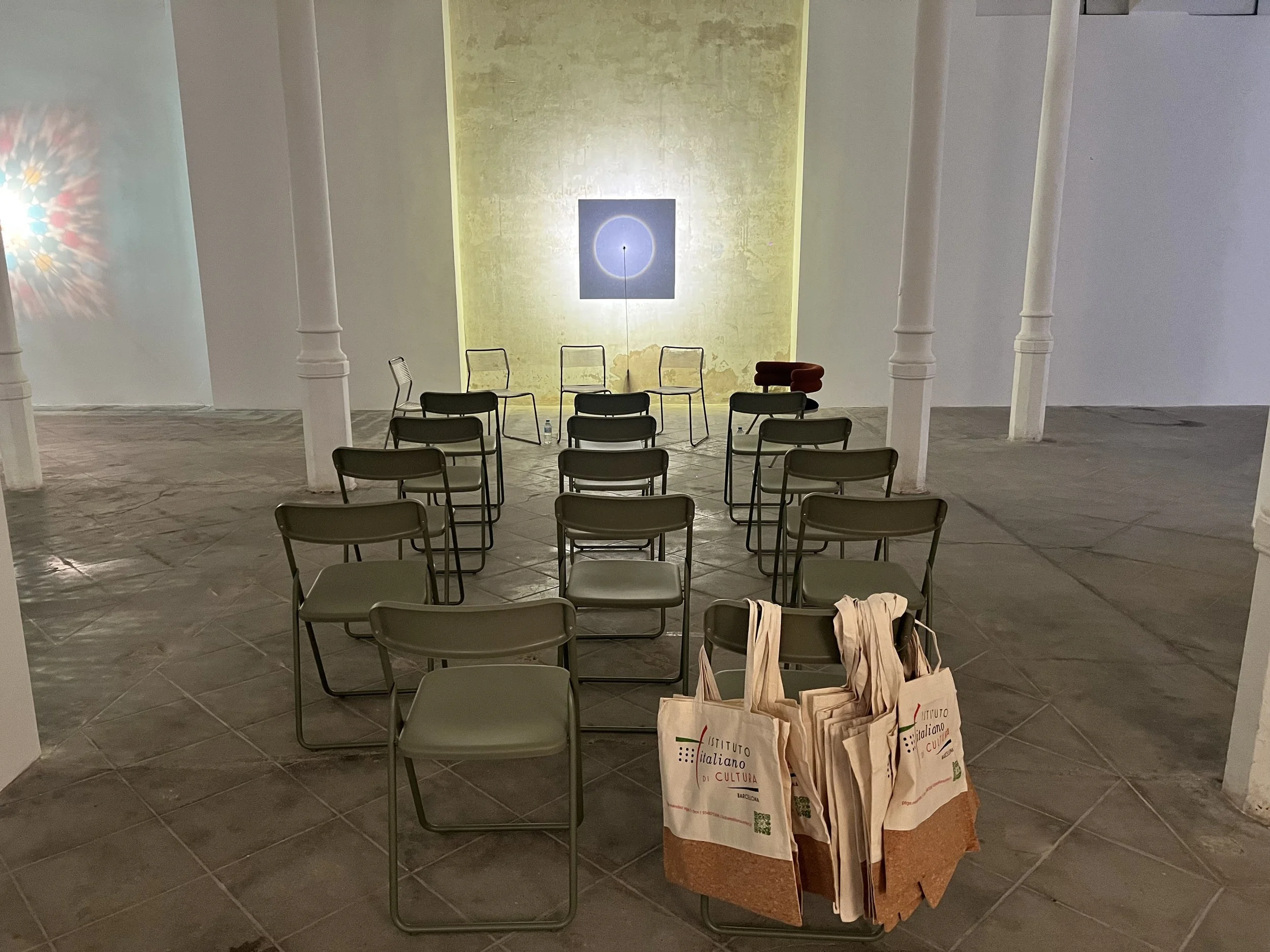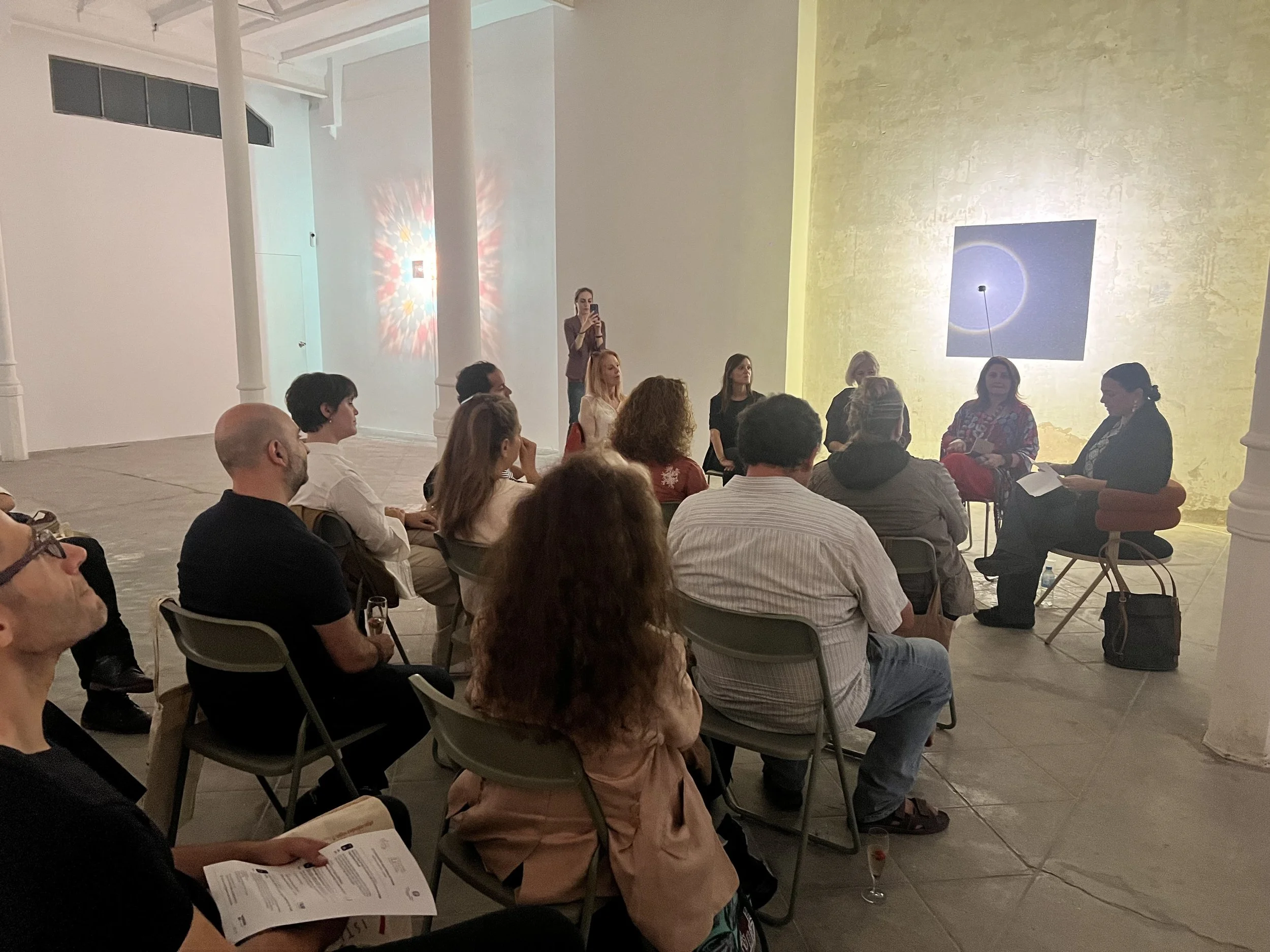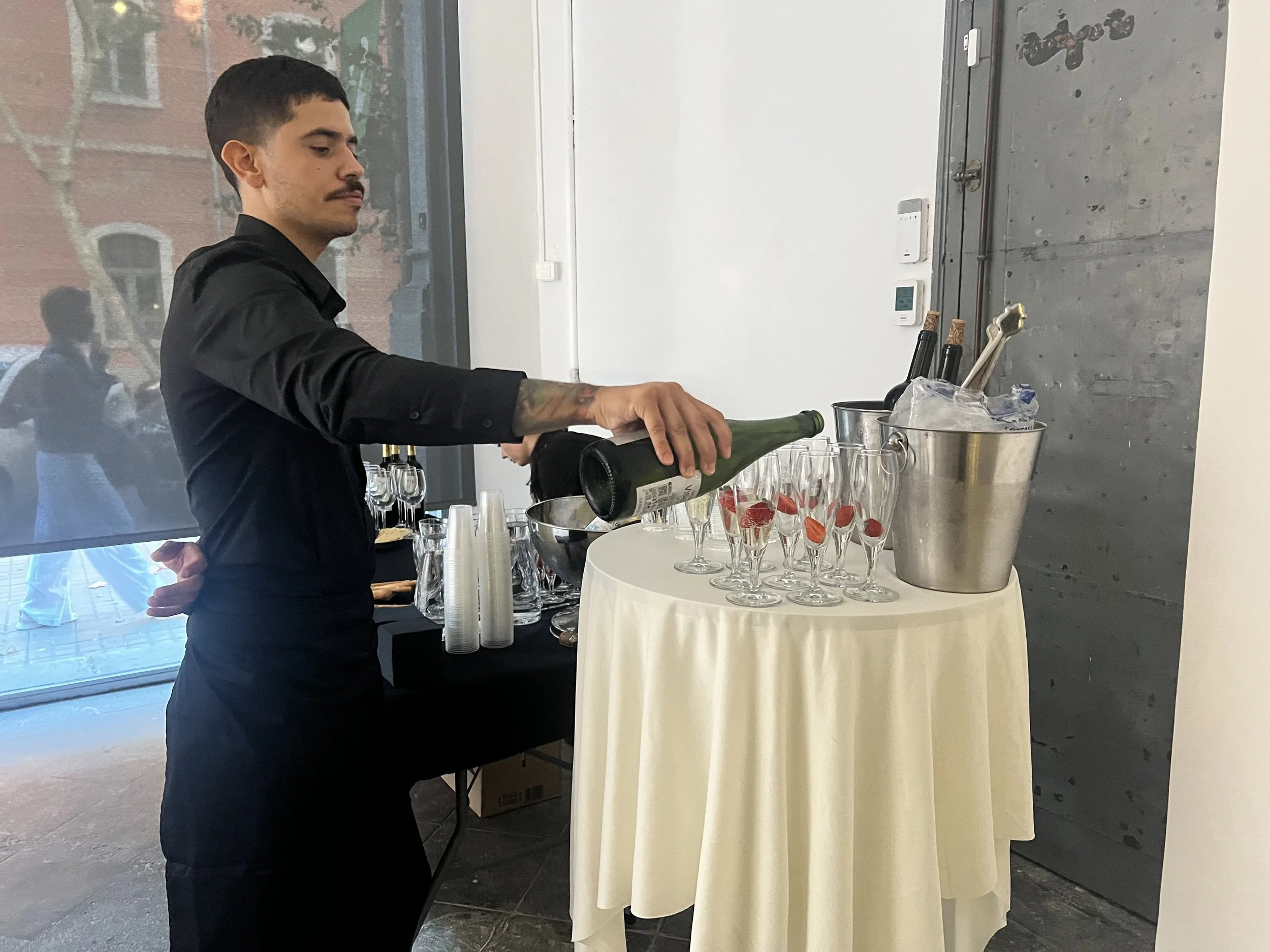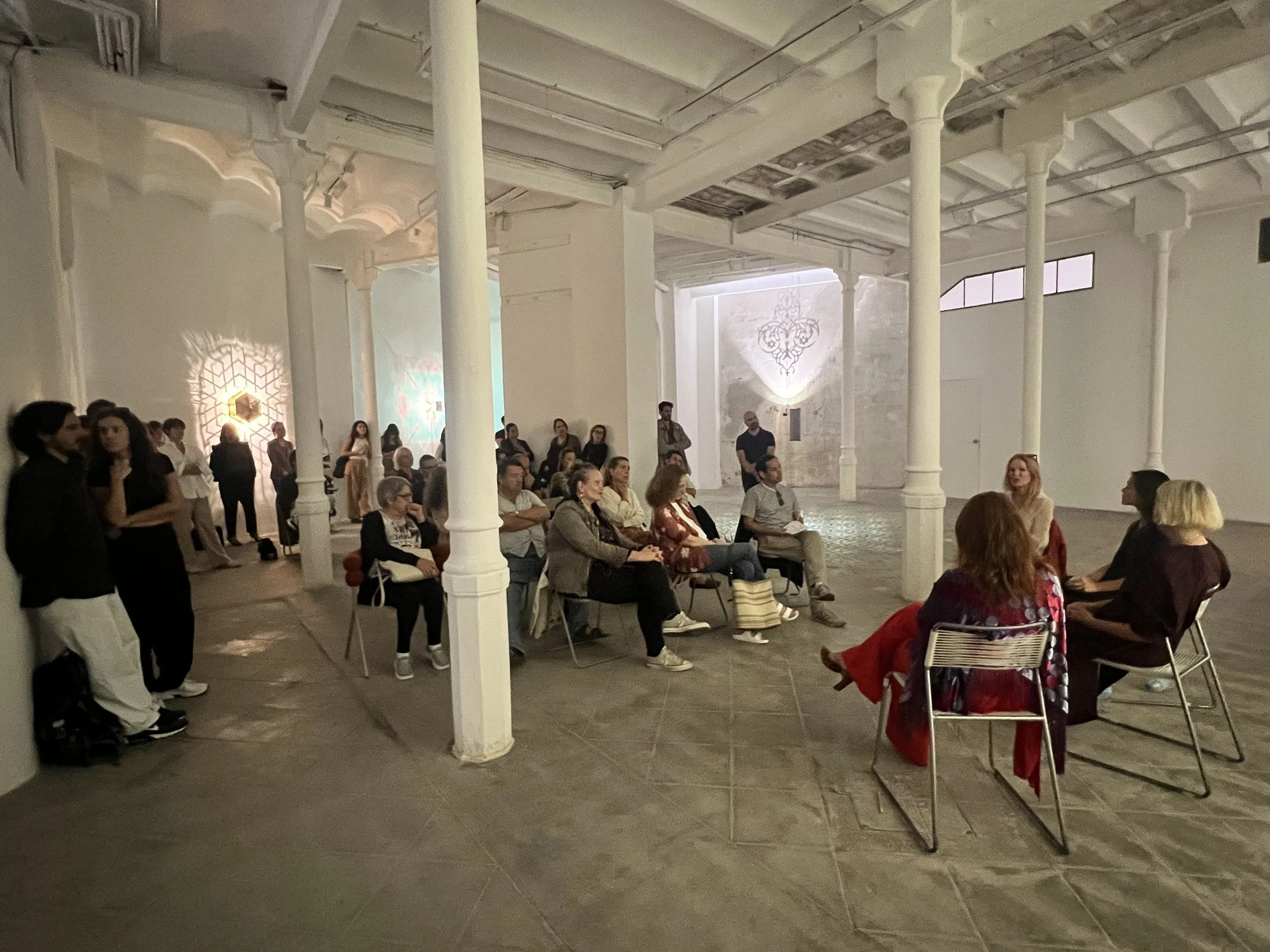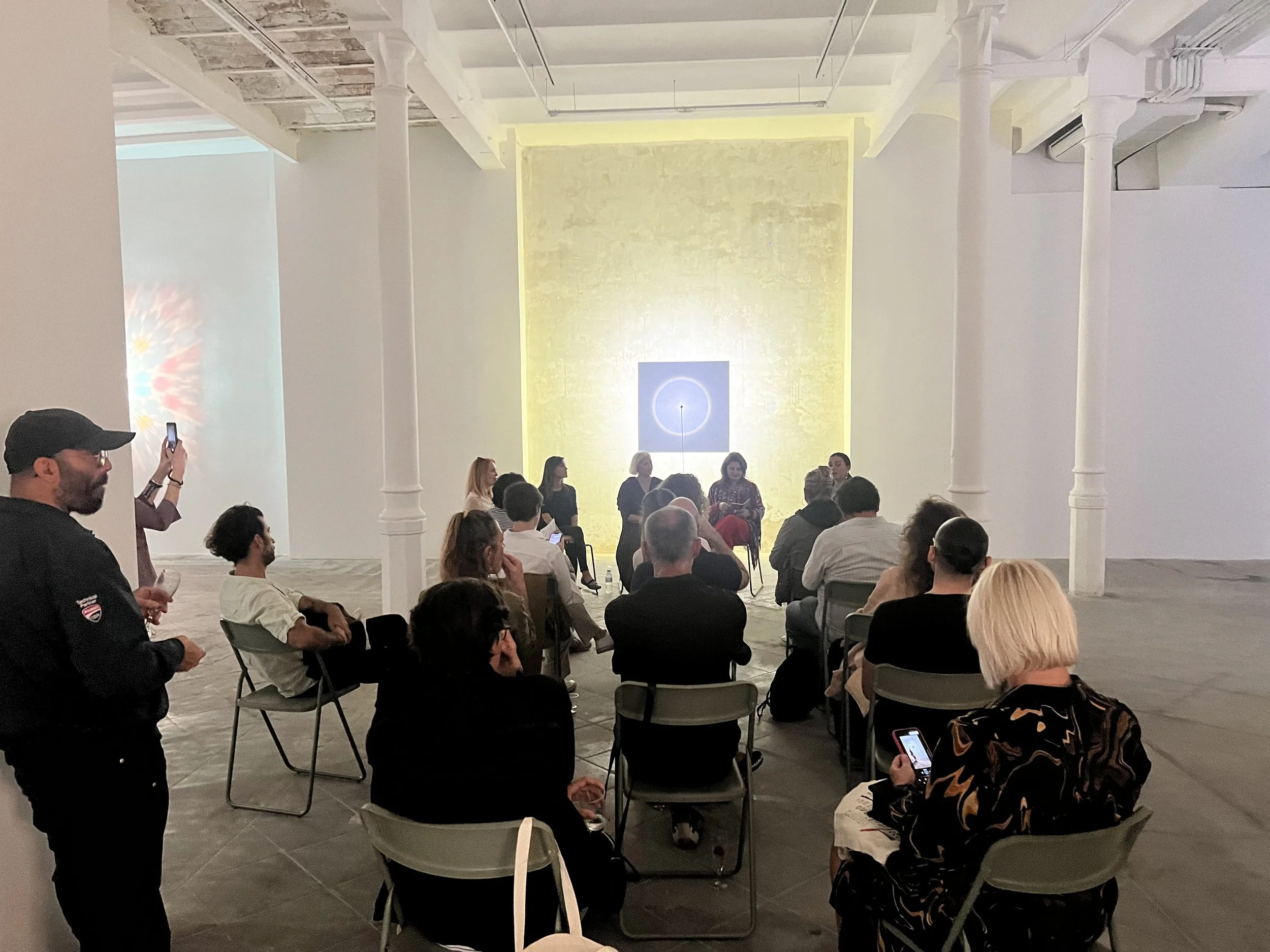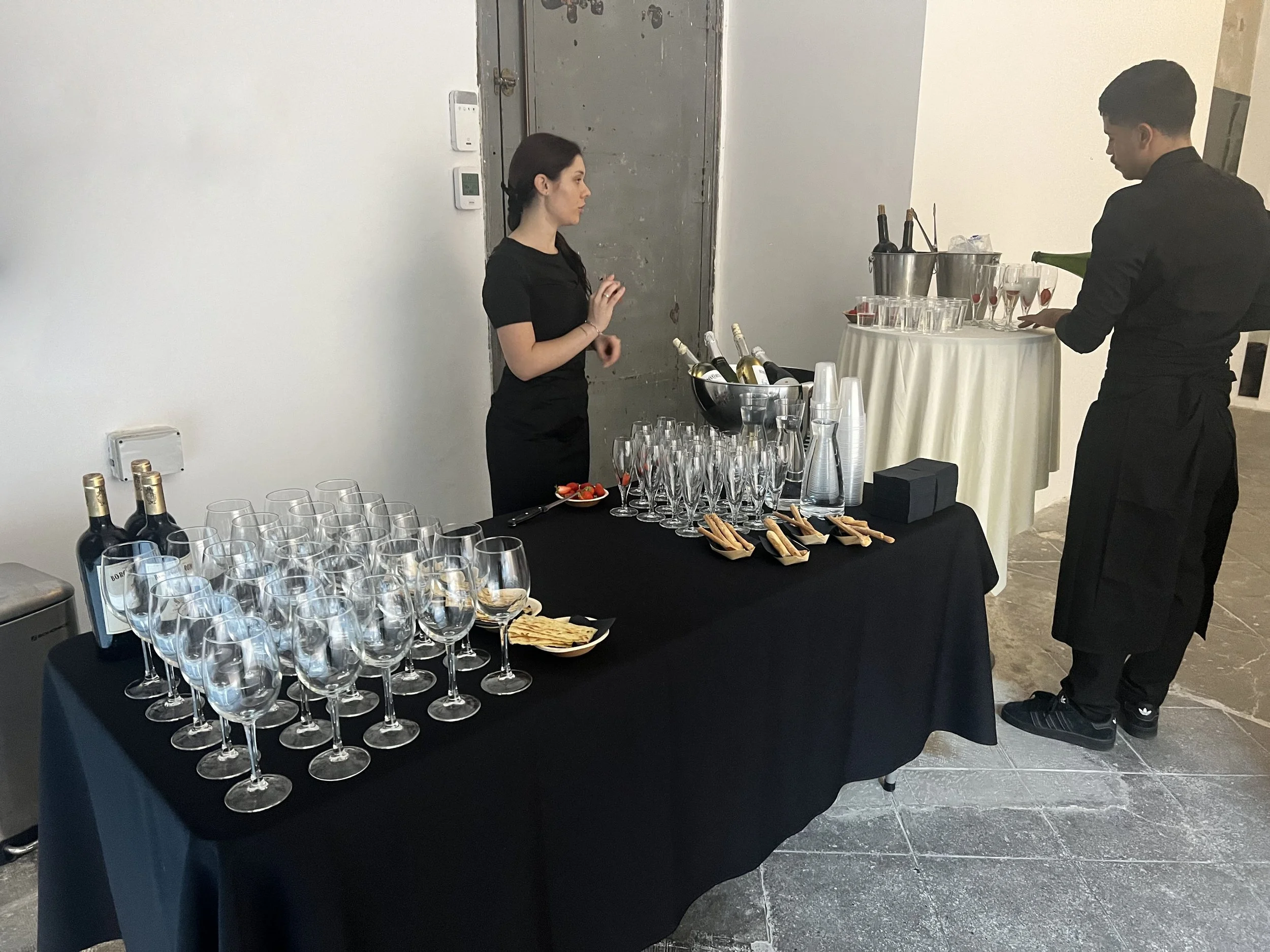Art, education, and training
As part of the 21st edition of the Giornata del Contemporaneo (Contemporary Art Day), promoted by AMACI – Association of Italian Contemporary Art Museums
Al-Tiba9 Gallery, in collaboration with the Italian Institute of Culture in Barcelona, is pleased to present the art talk
Art, Education, and Training: Towards New Challenges and Horizons.
The talk will be moderated by Savina Tarsitano, artist and ambassador of the Terzo Paradiso of Michelangelo Pistoletto and Città dell’Arte, and with the participation of Anna Maria Di Giorgio, director of the Italian Institute of Culture.
A cocktail will be served afterwards, courtesy of the Italian Cultural Institute of Barcelona.
The discussion will feature:
Guendalina Perelli, Communications Advisor
Cristina Pineda, Director, Actress, and Audiovisual Producer
Alessia Gervasone, PhD Researcher in the Department of Art History at the University of Barcelona (UB) and Independent Curator
The debate will be presented inside the exhibition by Italian artist Fabrizio Corneli, titled "Through The Void". After the talk, gallery owner and curator Mohamed Benhadj will offer a guided tour of the exhibition.
Art has always had the mission of anticipating its time, of being visionary and at the same time a mirror of every society and every era. Through their creations, artists have the ability to see what others cannot, to foresee the future; they provoke, arouse curiosity, raise questions, denounce, and contemplate different scenarios, from politics to economics, from society to culture, to beauty. As Paul Klee affirmed: “Art does not reproduce what is visible, it makes visible what is not always so.”
Today, we live in a very complex and difficult age marked by wars, international and ideological crises, new geopolitical systems, the climate crisis, and threats to peace and democracy. In this context, art plays an important and essential role, creating new solutions, offering hope, painting a better future, or simply serving as an ode to beauty and contemplation.
Art and artists bring light and hope, acting as bridges between cultures, peoples, and generations. Through its creations, art bears witness to each era, leads viewers to reflection, opens new horizons, builds alliances, and creates spaces for cultural and experiential exchange.
In this scenario, the relationship between training and education plays a fundamental role, as it contributes to both individual and collective growth by fostering new collaborations between institutions, schools, galleries, museums, artists, art centers, and universities. Today, art acts as a catalyst within schools, for example, offering creative solutions to address life’s complexities, in universities, or even simply through informal and direct learning, such as visiting an exhibition or discovering an artist who might even change one’s life. From this arises the curiosity to discuss together the role that galleries, art centers, curators, artist residencies, museums, and so on play today.
In a way, art makes us become children again. As Bruno Munari said: “Keeping childhood’s spirit alive within oneself throughout life means preserving the curiosity to know, the pleasure of understanding, the desire to communicate.”
The talk “Art, Education, and Training” aims to foster dialogue and open new horizons, thanks also to the exhibition of Italian artist Fabrizio Corneli, who, with “his poetic use of light and shadow, transforms absence into presence. His work transcends the boundaries between science and art, offering a meditative journey through perception, time, and the invisible forces that shape our reality.” (Mohamed Benhadj).
En el marco de la 21ª edición de la Jornada del Contemporáneo promovida por AMACI (Asociación de Museos de Arte Contemporáneo Italianos)
Al-Tiba9 Gallery, en colaboración con el Instituto Italiano de Cultura de Barcelona, se complace en presentar el debate:
Arte, educación y formación: hacia nuevos retos y horizontes
Moderado por Savina Tarsitano, artista y embajadora del Terzo Paradiso de Michelangelo Pistoletto y Cittadellarte,
Bienvenida a cargo de la directora del Instituto Italiano de Cultura, Di Giorgio Anna Maria.
A continuación se servirá un cóctel ofrecido por el Instituto Italiano de Cultura de Barcelona.
Participarán en la charla:
Guendalina Perelli, asesora de comunicación
Cristina Pineda, Directora, actriz y productora audiovisual
Alessia Gervasone, investigadora de doctorado en el Departamento de Historia del Arte de la Universidad de Barcelona (UB) y comisaria independiente.
El debate se presentará dentro de la exposición del artista italiano Fabrizio Corneli titulada “Through The Void”. Con visita guiada a las 18:00 h con el galerista y comisario Mohamed Benhadj.
El arte siempre ha tenido como misión adelantarse a su tiempo, ser visionario y, al mismo tiempo, reflejar cada sociedad y cada época. Los artistas, a través de sus creaciones artísticas, tienen la capacidad de ver lo que otros no pueden ver, de prever el futuro, estimulan, intrigan, cuestionan, denuncian, contemplan diferentes escenarios desde la política, la economía, lo social, la cultura, la belleza, como afirmaba Paul Klee: «El arte no reproduce lo visible, sino que hace visible lo que no siempre lo es».
Hoy en día vivimos una época muy compleja y difícil, caracterizada por guerras, crisis internacionales, ideológicas, nuevos sistemas geopolíticos, crisis climática, amenazas a la paz y a la democracia, y en este escenario el arte tiene un papel importante, esencial para crear nuevas soluciones, para dar esperanza, para pintar un futuro mejor o simplemente para ensalzar la belleza y la contemplación.
El arte y los artistas aportan luz y esperanza, actúan como puentes entre culturas, pueblos y generaciones. El arte, con sus creaciones, es testigo de cada época, lleva al espectador a la reflexión, abre nuevos horizontes, crea nuevas alianzas y espacios para el intercambio cultural y de experiencias. En este contexto, la relación entre formación y educación desempeña un papel fundamental, ya que contribuye al crecimiento individual y colectivo creando nuevas cooperaciones entre instituciones, escuelas, galerías, museos, artistas, centros de arte y universidades. El arte se erige hoy en día como catalizador dentro de las escuelas, por ejemplo, ofreciendo diferentes soluciones creativas para afrontar la complejidad de la vida, o en las universidades, o simplemente a través de una formación informal y directa al visitar una exposición, al descubrir a un artista que a veces puede cambiar la vida, de ahí surge la curiosidad por dialogar juntos sobre el papel que desempeñan hoy en día las galerías, los centros de arte, los curadores, las residencias de artistas, los museos, etc.
En cierto sentido, el arte nos hace volver a ser niños y, como afirma Bruno Munari: «Conservar el espíritu de la infancia dentro de uno mismo durante toda la vida significa conservar la curiosidad por conocer, el placer de comprender, el deseo de comunicar». La charla «Arte, educación y formación» propone dialogar juntos y abrir nuevos horizontes, gracias también a la exposición del artista italiano Fabrizio Corneli, que con «su uso poético de luces y sombras transforma la ausencia en presencia». Su obra trasciende las fronteras entre la ciencia y el arte, ofreciendo un viaje meditativo a través de la percepción, el tiempo y las fuerzas invisibles que dan forma a nuestra realidad. (Mohamed Benhadj).



